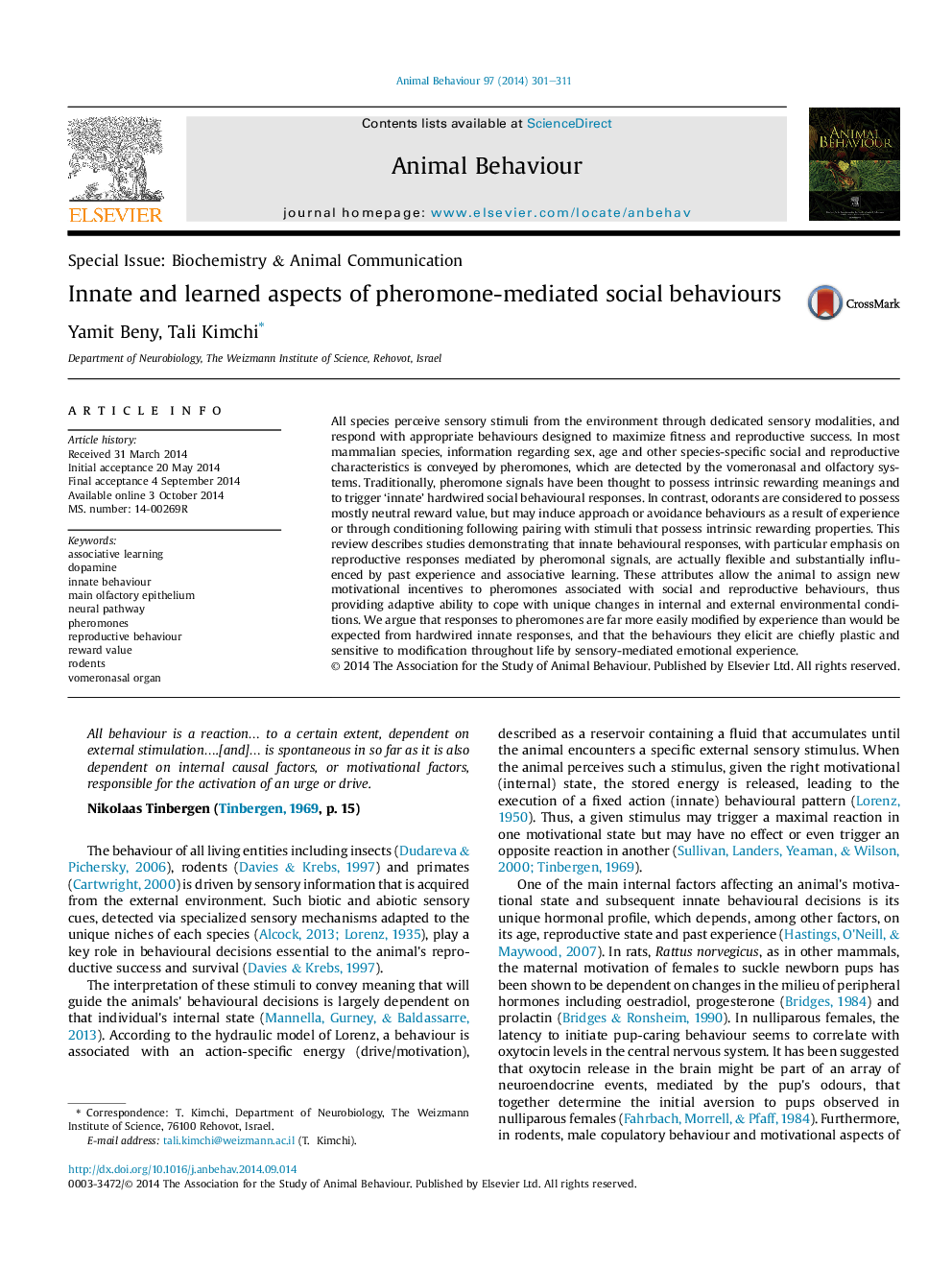| Article ID | Journal | Published Year | Pages | File Type |
|---|---|---|---|---|
| 8490345 | Animal Behaviour | 2014 | 11 Pages |
Abstract
All species perceive sensory stimuli from the environment through dedicated sensory modalities, and respond with appropriate behaviours designed to maximize fitness and reproductive success. In most mammalian species, information regarding sex, age and other species-specific social and reproductive characteristics is conveyed by pheromones, which are detected by the vomeronasal and olfactory systems. Traditionally, pheromone signals have been thought to possess intrinsic rewarding meanings and to trigger 'innate' hardwired social behavioural responses. In contrast, odorants are considered to possess mostly neutral reward value, but may induce approach or avoidance behaviours as a result of experience or through conditioning following pairing with stimuli that possess intrinsic rewarding properties. This review describes studies demonstrating that innate behavioural responses, with particular emphasis on reproductive responses mediated by pheromonal signals, are actually flexible and substantially influenced by past experience and associative learning. These attributes allow the animal to assign new motivational incentives to pheromones associated with social and reproductive behaviours, thus providing adaptive ability to cope with unique changes in internal and external environmental conditions. We argue that responses to pheromones are far more easily modified by experience than would be expected from hardwired innate responses, and that the behaviours they elicit are chiefly plastic and sensitive to modification throughout life by sensory-mediated emotional experience.
Keywords
Related Topics
Life Sciences
Agricultural and Biological Sciences
Animal Science and Zoology
Authors
Yamit Beny, Tali Kimchi,
